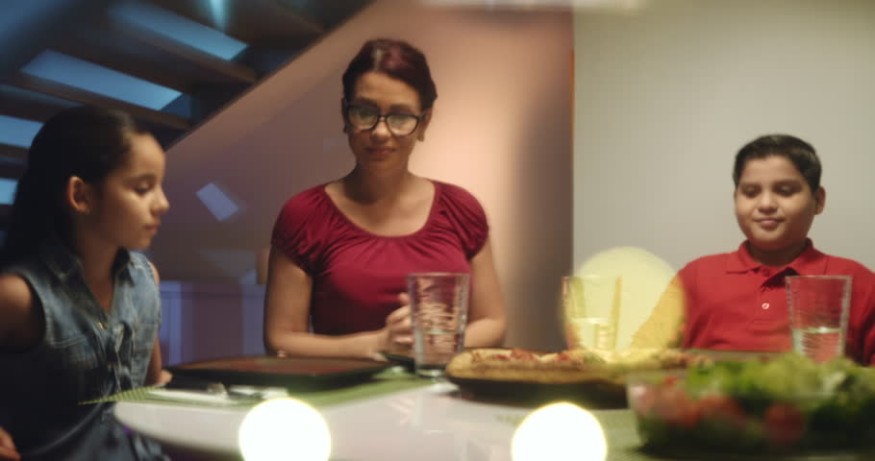10 Awesome Traits of Latina Moms

Parents around the world raise their children in different ways based on their customs, traditions and beliefs. How parents raise their children is very important because it gives everyone an idea as to what kind of family they have.
Raising a child in today's generation is very difficult. Most parents today are young millennials and they only have few ideas on how it is to be a parent. However, there are distinct ways of how Latina Moms raise their children based on an article published in Romper. And here are some of them:
1. Latina moms encourage you to call everyone "Tio" and "Tia"
It is a common assumption that Latinas are family-oriented and they come from big families. It is also part of the Latino family to train their children to call everyone "Tio" and "Tia" even if they are not biologically related to them as a sign of respect. Don't be surprised if your Latino friends call people around them "Tio" and "Tia" or in English, uncle and aunt.
2. Latina moms encourage you to be affectionate
Part of Latino culture is greeting everyone with a kiss on the cheeks or a hug. This is practiced always by the Latino family and sometimes Latino teens feel embarrassed because they are seen kissed on the cheeks by their parents or holding their hands while fetching them at school. But they can't negate it because this is part of their culture. Later on in life, they will appreciate the value of it because it will teach them how important it is to be affectionate with your family.
3. They are always willing to feed you and your family
Try to visit the house of your Latino friend and you will be surprised at how hospitable they are. Latina moms are very much willing to welcome your friends and cook food for them. Latina moms usually stew, fry, or bake food for their visitors.
4. They save food containers and fill them with new dishes
Latina moms are usually thrifty so they save food containers that they will fill with new food or miscellaneous items. They love to buy food that is in jars or Tupperware and clean it after so that they can use it in saving food and some leftovers that are not quick to perish.
5. They are imbued with a special love of cafecito
This is what every household has, the cafe con leche that most Latinos have. This is best served by Latina moms with toasted or buttery bread and dipped in coffee. So don't be surprised if you visit the house of your Latnmo friend and you are offered a sumptuous meal and a coffee.
6. Gives you a nickname that is often based on your physical appearance
Latinos have unique nicknames. You may hear some Latina moms call their children as Gorda which means fat or flaca which means skinny. There are still some nicknames that you can hear from Latina moms. Most of the time, Latinos have almost the same nicknames. It's quite confusing but for them, they call their loved ones this way to show their affection and love.
7. Latina moms make sure you never get cold or fever
Latina moms never allow their child to get a fever or colds easily. The moment that the temperature is below 70 degrees, a Latina mom covers her child with three layers of cloth immediately and with a parka. As an old saying goes "Health is wealth."
8. They instill the fear of Pneumonia
Latina moms instill in the minds of their children the fear of having Pneumonia because it's a silent killer. The moment that a Latina mom sees their child running around without shoes and socks, even if their child is 25 years old already, they feel terrified. They always remind their children to take care of their health.
9. They teach you to be grateful for what you have
Some of the Latino families do not come from wealth. This leads some parents to go abroad just to give their children a better life. But, the good thing about the Latino family is they always remind their children to be thankful for what they have and not to focus on what they do not have.
10. Scold you at home
Latina moms never scold their children in public, most especially in schools. But once you are at home that's the time that they will start to scold you. This practice is even better because it is not humiliating rather than being scolded in front of friends or strangers.
Subscribe to Latin Post!
Sign up for our free newsletter for the Latest coverage!
© 2025 Latin Post. All rights reserved. Do not reproduce without permission.














